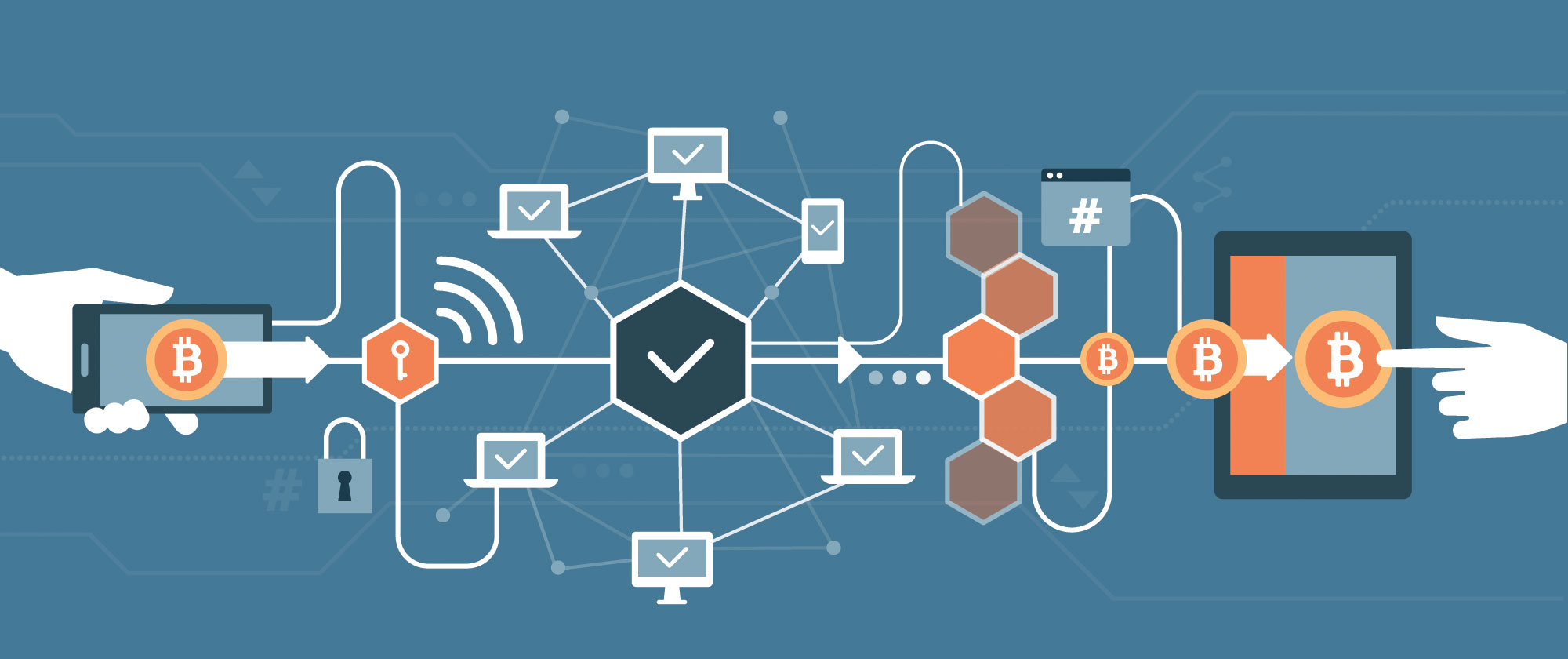A cryptocurrency bitcoin, Blockchain is a prominent technology that is now dominating many industries.
Blockchain is a word you would have missed only if you have been living under a rock. Apart from being one of the buzzwords on the internet, Blockchain is also one of the most exciting and promising technologies available today. Blockchain, the ingenious invention and the brainchild of Satoshi Nakamoto, has garnered an enormous amount of attention since the price shoot-up of its first application — the bitcoin.
When the bitcoin rose to prominence in 2009, it shook up the financial world due to the development of an unregulated tech-based currency. A currency that no one controlled became the talk of the internet. Bitcoin’s ease of use and absence of a trace showed flexibility that was unheard of in the financial world. The prices skyrocketed due to its appeal to the financial corporations.
But for all its advantages, bitcoin was overshadowed due to the anonymity and unregulated nature attached to it. It enabled people to use the coin for unauthorised transactions that would stay off the books, as well as for schemes that cheated people. This directed people to the underlying technology of bitcoin, i.e., Blockchain.
Why are people so excited about Blockchain?
Although a complicated technology to understand, Blockchain at its core is nothing but a chain of blocks — a database of information. The blocks store digital pieces of information on the chain, which forms a database, and are secured using cryptographic principles. These blocks of data are managed by a cluster of computers rather than one central authority.
The network participants — the computers — share the same transaction records and update only through consensus. This is the attribute that gives industry-disrupting capabilities to Blockchain technology. The cryptographic security and lack of central authority make the information on Blockchain open for anyone to see. Altering a single transaction record would demand the alteration of all subsequent records and the cooperation of the entire network. Thus, higher transparency, improved security, and enhanced traceability of the Blockchain technology have the ability to disrupt and transform traditional business models.
This would mean storing and transferring of value — stocks, currencies, property rights — without central authority while offering similar security, higher speed, and lower costs. According to a prediction by the World Economic Forum, about 10% of the complete global Gross Domestic Product (GDP) would be stored on Blockchain by 2027. This would imply that there is still time for anyone who would want to be a part of the Blockchain revolution. So, let’s discuss some of the most compelling and transformative solutions that would play a major role in the Blockchain revolution.
Logistics and transportation
Technological and procedural developments in the logistics industry have heightened the commercial transportation industry’s ability to provide efficient service an all-time high in demand – adjusting to the change in consumer preference and expectations concerning delivery time and cost.
New Blockchain-enabled platforms have allowed easy coordination of documents on a shared distributed ledger, making physical paperwork unnecessary. Using smart contracts, approvals and customs clearance has become quicker and efficient and has reduced processing time for goods at custom checkpoints on a massive scale. Earlier on, processing and administration costs had risen to 20% of transportation overall costs because of relying heavily on paper transactions.
With the demand rising for same day delivery and three-hour delivery services, traditional tracking technologies will not scale. Blockchain technology provides an immediate solution for order-tracking and authentication.
Organisations need to be updated and secure authentic data to make decisions. Blockchain ensures trustworthy data across the transportation and logistics ecosystem since the overall network contributes to data validation.
Enterprise Blockchain
Corporations have grown increasingly interested in the field of the Blockchain in the past few years. The use of this technology within corporations is bound to dominate real-world projects soon. Enterprise Blockchain is predicted to hold a significant fraction of the USD 500-billion-plus global enterprise software market. The benefits of Blockchain make it a fitting technology for the enterprise market and will allow companies to deploy more secure systems as well as achieve faster service delivery.
Enterprises are interested in these Blockchain capabilities fundamentally to launch new business models or revenue streams that can reduce cost and/or time for transactions as well as improve the product and system security. The enterprise Blockchain will enable corporations to find and reduce fraud by increasing transparency and incentivising certain behaviour that can help increase customer loyalty.
Due to corporations like IBM striking partnerships with hundreds of enterprises with the aim of exploring Blockchain implementation, the area of enterprise Blockchain can be seen as the largest opportunity for growth, investment and value creation in the Blockchain space over the next few years.
Supply chain management
Today’s supply chain management models are increasingly complicated and diverse. They are still riddled with inefficiency and rely massively on paperwork and hundreds of people to carry out the manual tasks. Implementation of Blockchain in supply chains will provide a transformational opportunity for enterprises to address these challenges by reducing enterprise risk, and saving time and cost.
Blockchain can reduce transaction times from days to seconds and eliminate the need for intermediaries to settle conflicts, and also reduce overhead costs. It will give greater traceability, allowing organisations to ensure product authenticity and safety, and limit fraud.
It is difficult to prove authenticity in high-value goods (such as diamonds) via the popular paper-based processes. With Blockchain, distinct product properties can be obtained and this data can be registered using consensus. This will only increase the trust between suppliers, partners, and consumers.
Moreover, as banks get involved in the chain, the conditioned payment in the supply chain can be further automated using smart contracts, which is an application of Blockchain technology. According to a report by IBM, nearly two-thirds of the retail and consumer goods industries will have Blockchain in full production by 2020.
Identity management
From licenses to passports to Aadhaar by the Unique Identification Authority of India (UIDAI), authenticating and establishing identity is vitally important for both citizens and government agencies. The costs of providing compromise-proof identity services are enormous.
The demand for identification documents and verifying existing credentials arises somewhat from the difficulty in linking enough verifiable personal data. It might sound like a simple procedure, but it is complicated by records in different formats containing sometimes-conflicting data. Using Blockchain for identity management will empower government agencies to create a single, reliable collection of digital identity documents. These documents will make it easier for government officials to settle data conflicts and equip the citizens with authority over their own identity.
If identity management is backed by this technology, each individual will be able to determine how he/she identify themselves and with whom their identity is shared. It would be fair to say that Blockchain is the ultimate nemesis of bureaucracy. By using smart contracts, this technology has the capability to remove middlemen from a range of traditionally complex tasks. Be it your individual problems such as buying authentic products, sending money quickly, dealing with a real estate property or treating health problems, or global problems in the fields of banking, governance, and elimination of the financial crisis around the world.
While interested people are working on enhancing the speed, scalability, and interoperability of this technology, the potential of Blockchain is yet to be entirely recognised. The realms of opportunities are boundless. Only time will tell how Blockchain evolves, but there is no second opinion to the case that it will play a major role in how we as a society evolve.
Aman Sanduja is the founder and promoter of TowardsBlockchain (TBC), a multinational company focused on Blockchain technology implementation. He is a prominent speaker at various Blockchain conferences and has delivered lectures on the topic at distinguished universities like IIT Delhi, IIT Indore, IIT Mandi, and IIM Ahmedabad.














